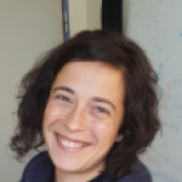Dr. (Carlos A.) de Matos Fernandes
Publications
Brouwer, J., & de Matos Fernandes, C. A. (2023). Using stochastic actor-oriented models to explain collaboration intentionality as a prerequisite for peer feedback and learning in networks. In The Power of Peer Learning: Fostering Students’ Learning Processes and Outcomes (pp. 103-120). Cham: Springer International Publishing.
Brouwer, J., De Matos Fernandes, C. A., Steglich, C. E., Jansen, E. P., Hofman, W. A., & Flache, A. (2022). The development of peer networks and academic performance in learning communities in higher education. Learning and Instruction, 80, 101603.
de Matos Fernandes, C. A. (2023). In or out? The paradox of exclusionary mechanisms in keeping cooperation going. [Thesis fully internal (DIV), University of Groningen]. University of Groningen. https://doi.org/10.33612/diss.768055223
de Matos Fernandes, C. A., & Keijzer, M. A. (2020). No one can predict the future: More than a semantic dispute. Review of artificial societies and social simulation.
de Matos Fernandes, C. A., Bakker, D. M., & Dijkstra, J. (2022). Assessing the test-retest reliability of the social value orientationslider measure. Judgment and Decision Making, 17(1), 31-49.
de Matos Fernandes, C. A., Flache, A., Bakker, D., & Dijkstra, J. (2022). A Bad Barrel Spoils a Good Apple: How Uncertainty and Networks Affect Whether Matching Rules Can Foster Cooperation. Journal of Artificial Societies and Social Simulation, 25(1), 6.
de Matos Fernandes, C. A., Hoffman, M., & Brouwer, J. (2024). Antecedents of student team formation in higher education. Learning and Instruction, 92, 101931.
Flache, A., & de Matos Fernandes, C. A. (2021). Agent-based computational models. In Research handbook on analytical sociology (pp. 453-473). Edward Elgar Publishing.
Greijdanus, H., de Matos Fernandes, C. A., Turner-Zwinkels, F., Honari, A., Roos, C. A., Rosenbusch, H., & Postmes, T. (2020). The psychology of online activism and social movements: Relations between online and offline collective action. Current opinion in psychology, 35, 49-54.







